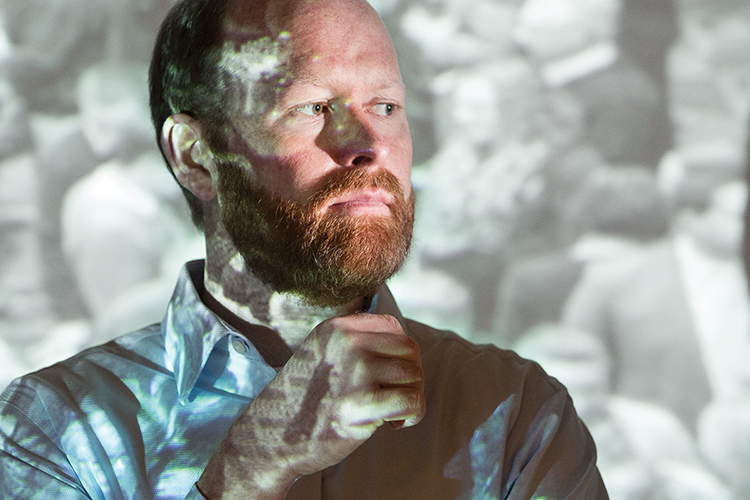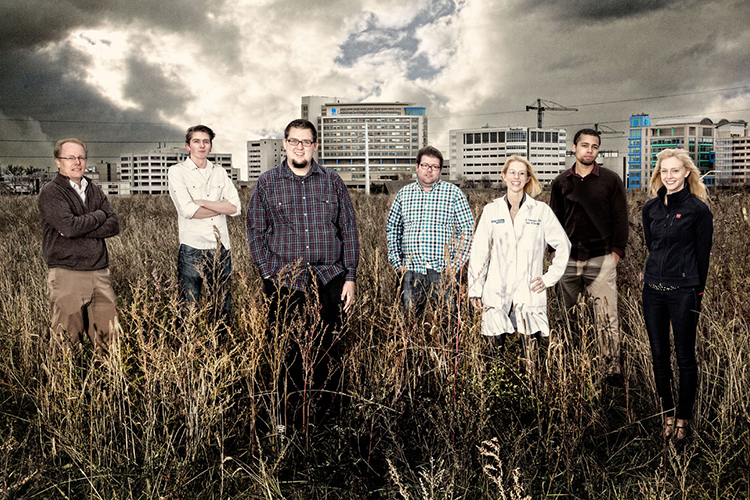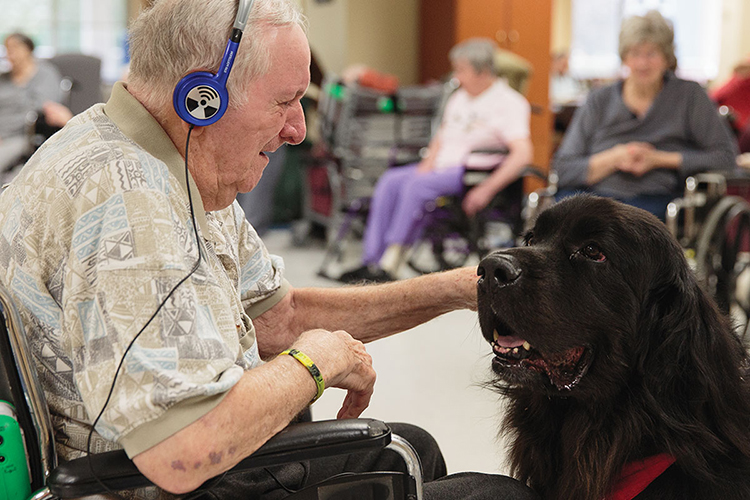Addressing today’s most pressing heath care concerns – including autism, cancer and dementia – is the day-to-day work of UWM research faculty in chemistry, public health, social work and even information technology. Here’s a look at five projects that could improve your health:
Drugs that target tumors
Even as it saves lives, cancer treatment kills – conventional drugs don’t discriminate between malignant cells and healthy ones.
“There are many ways of treating cancers, but the common problems are the side effects, so the patients suffer a lot during the treatment,” UWM bio-organic chemist Xiaohua Peng says.
Peng thinks there’s a better way. She is developing compounds that are activated by conditions unique to cancer – increased oxidative stress and hypoxia, which is a lack of oxygen. Her compounds would kill cells selectively during treatment. Early tests at the National Cancer Institute and University of Texas MD Anderson Cancer Center are promising: Peng’s compounds led to a 60 percent to 90 percent reduction in various kinds of human cancer cells, including leukemia and lung cancers. MD Anderson’s tests also found the compounds had no harmful effects on healthy cells. Peng and her team will test these compounds next on mice with cancer. [Read more]
Taking down heart disease
Paul Auer is slowing down one of America’s biggest killers – heart disease. Based in the Zilber School of Public Health, the biostatistician is part of a national research team that has identified key genetic mutations linked to increased risks of heart disease. Another rare mutation he’s helped discover is connected to a 50 percent reduction in the risk of heart attacks.
“It’s significant in terms of public health research because heart attacks and heart disease are a leading cause of death,” says Auer. “Findings like these that could help prevent heart disease are very exciting.”
Big Data fuels his research, which extends to genetic issues that target people of color. One in 12 African Americans is affected by sickle cell trait, the presence of one copy of the gene that causes sickle-cell disease. For years, the medical establishment considered the presence of one copy to be a benign condition because two copies are required to develop the disease. Auer and his colleagues reversed that thinking with a recent study published in the Journal of the American Medical Association: African Americans with sickle-cell trait face up to a twofold increased risk of chronic kidney disease. [Read more]
Medical data on demand
The moments after a stroke are critical for doctors aiming to give victims the best possible recovery. Clinical trials can help develop evidence for future treatments, but it can take hours to assess stroke survivors’ suitability, enroll them and begin administering treatment.
“It’s important to quickly reach out to those who are willing to consent and who are eligible,” says Alicia Castonguay, assistant professor of neurology and director of the Stroke, Neurocritical Care, and Neurointerventional Research Center at the Medical College of Wisconsin (MCW).
A team of undergraduate technology and design students at the UWM App Brewery are helping doctors at the Medical College make faster decisions by putting information from clinical trials at their fingertips. Data once stored in massive binders is now available in a smart phone application. Called REACH, the app was conceived, designed, tweaked and tested by MCW and UWM teams.
“This is going to provide us a way to help improve patient access to successful therapies,” says Castonguay. [Read more]
Music & Memory
Can favorite songs soothe? Jung Kwak, an assistant professor of Social Work in the Helen Bader School of Social Welfare, is about to find out. Kwak is co-principal investigator of the first rigorous evaluation of the New York-based Music & Memory Program, which provides dementia patients with iPods filled with their favorite music.
“More than 70 percent of people with dementia are affected by depression, aggression, anxiety, apathy or withdrawal,” Kwak says. “We’re studying whether people with dementia who listen to their favorite songs require less anti-depressant and anti-anxiety medications.”
With her UW-Milwaukee-based team, Kwak is closely following 60 residents at 10 nursing homes. The team will determine to what extent music might be as effective as drugs, but care staff already describe the program as magical. [Read more]
Autism’s ties to bad air
Researchers know vaccines don’t cause autism. The disease isn’t contagious, and genetics are a component. Now, UWM epidemiologist Amy Kalkbrenner is unlocking another piece of the autism puzzle:
“There is something about traffic-related air pollution that can be linked to autism rates. We’re not sure what exactly, but the latest research shows we’re on to something.”
Kalkbrenner’s study published in the journal Epidemiology zeroed in on PM10, airborne coarse and fine particulate matter that arises in part from traffic-related air pollution. Looking at medical records for more than 160,000 children born in North Carolina or California in the mid- to late 1990s, her team found that exposure to higher amounts of traffic-related air pollution could harm unborn children in the third trimester of pregnancy. Future research will dig deeper into the autism-pollution connection. What chemicals are most dangerous? When is their impact strongest? [Read more]












